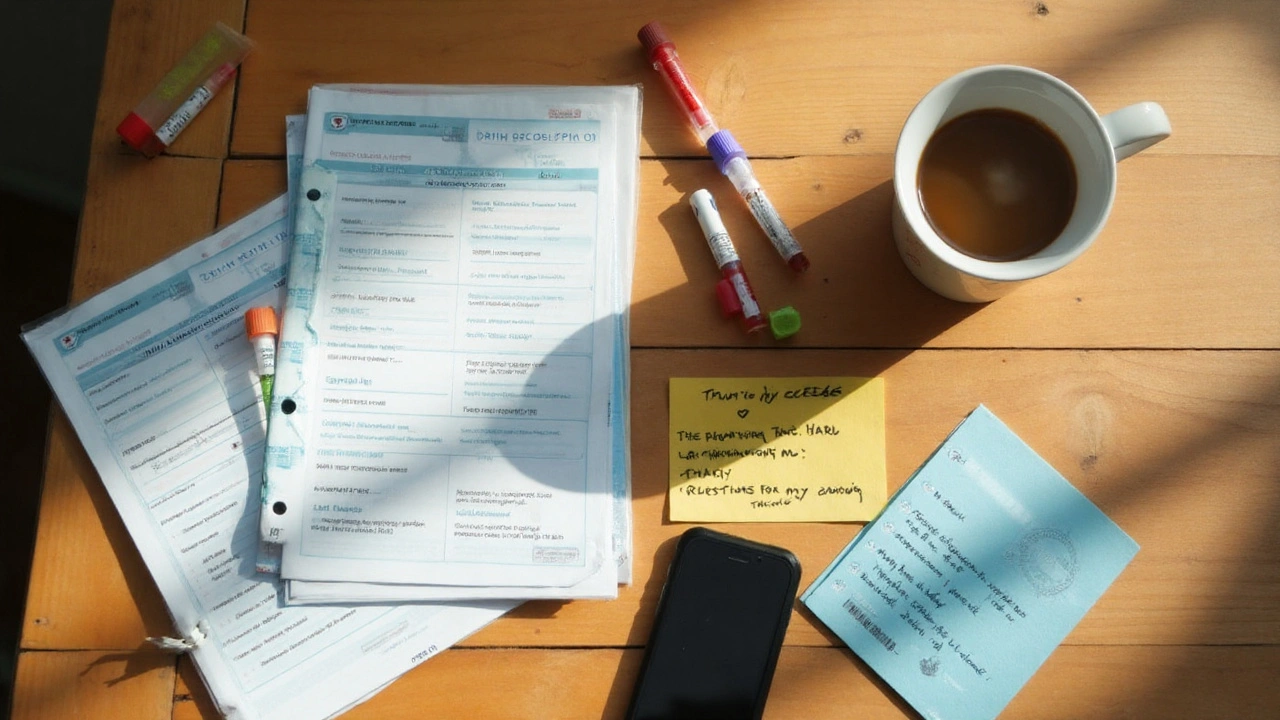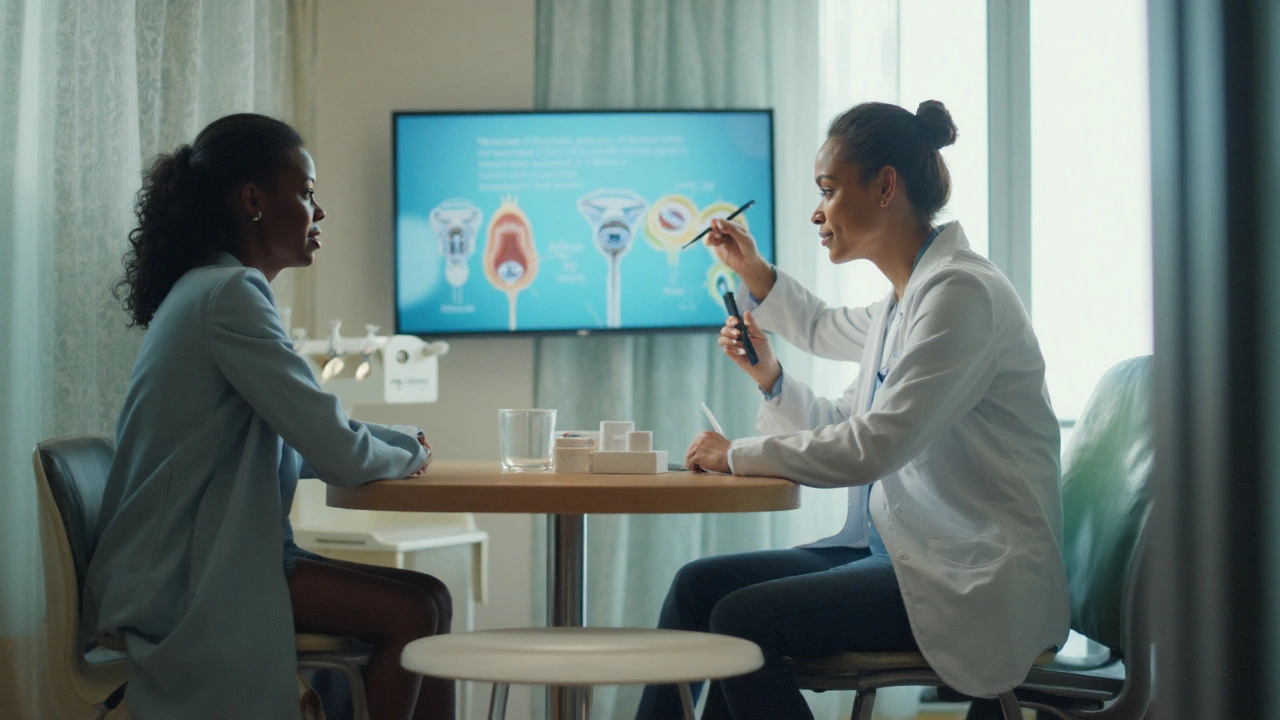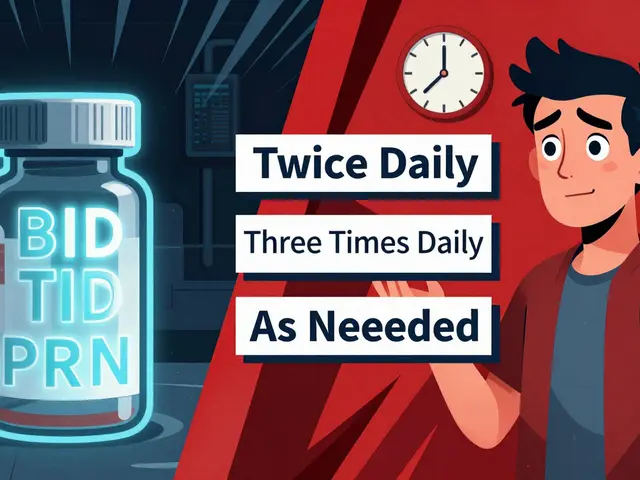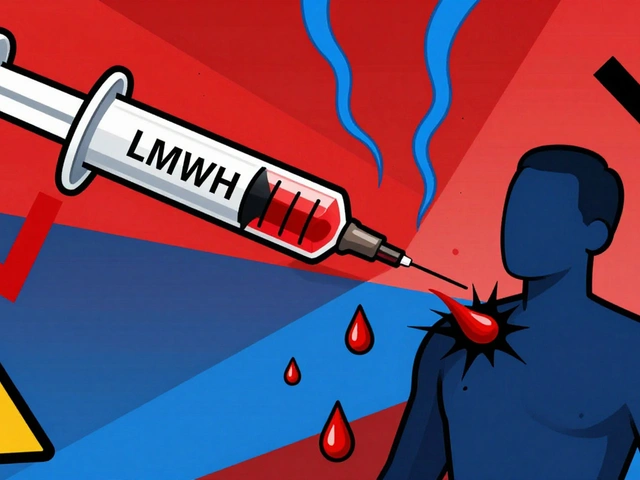When your immune system fires at the wrong target, it can nudge fertility off course-sometimes subtly, sometimes decisively. If you’re dealing with an autoimmune diagnosis and struggling to conceive or stay pregnant, you’re not imagining it. There is a real link, and you’ve got more control than it feels. This guide cuts through noise and trends, and stays with what reliably moves the needle: testing that matters, treatments that work, and smart timing.
- autoimmune infertility is usually driven by inflammation, hormone disruption, clotting issues, or direct attack on reproductive tissue.
- Not all immune tests help. A short, high-yield panel catches most treatable problems.
- Controlling disease before conception improves live birth rates across lupus, IBD, thyroid disease, and more.
- For antiphospholipid syndrome, low-dose aspirin plus heparin transforms outcomes.
- IVF still works for many autoimmune conditions, but add-ons like intralipids and NK testing don’t have solid evidence.
Why Autoimmune Disorders Can Disrupt Fertility
Autoimmune conditions aren’t one thing. Some crank up inflammation; others trigger clots or hijack hormones. That’s why the impact on fertility is uneven. Four mechanisms explain most of it:
- Inflammation that interferes with ovulation, implantation, or early embryo signaling. Think rheumatoid arthritis flares or active inflammatory bowel disease.
- Hormone disruption that throws off cycles. Thyroid autoimmunity can skew TSH, which quietly reduces ovulation quality long before you feel “hypothyroid.”
- Clotting problems that impair implantation or the placenta. Antiphospholipid antibodies make tiny clots at the worst possible time.
- Direct attack on reproductive tissue. Rare, but autoimmune oophoritis can knock down ovarian reserve.
There’s also a timing piece. Many autoimmune conditions follow a flare-remission rhythm. Trying to conceive during a flare stacks the deck against you: more anovulatory cycles, poorer lining, higher miscarriage risk. In contrast, stable disease often removes a chunk of the risk.
Big picture numbers help calibrate expectations:
- Thyroid peroxidase (TPO) antibodies show up in about 10-15% of reproductive-age women. Among those with normal TSH but TPO positivity, miscarriage risk is about 1.8-2.3 times higher than antibody-negative peers, based on multiple cohort studies.
- Antiphospholipid syndrome (APS) drives 2-5% of recurrent pregnancy loss. Treated properly, live birth rates can exceed 70-80% versus 10-20% untreated in historical cohorts.
- Systemic lupus erythematosus (SLE) isn’t a fertility killer by default. The risk rises when disease is active or kidneys are involved.
- Celiac disease, if unrecognized and active, is linked to subfertility and miscarriage. A strict gluten-free diet normalizes much of this risk.
One more common snag: medications. Some are fertility-friendly, some are not. NSAIDs can blunt ovulation when used around the LH surge; methotrexate and mycophenolate are teratogenic and must be stopped well before trying.
Which Autoimmune Conditions Affect Fertility-and How
These are the conditions most often tied to trouble conceiving or staying pregnant, and what typically helps:
| Condition | How it affects fertility | Key tests | What helps | Pregnancy-safe meds (guideline-aligned) |
|---|---|---|---|---|
| Autoimmune thyroid disease (Hashimoto’s/Graves’) | Ovulatory dysfunction, higher miscarriage risk with TPO antibodies | TSH, free T4, TPO antibodies | TSH in target before conception; treat overt hypo/hyperthyroidism | Levothyroxine is safe; avoid anti-thyroid drugs in excess; endocrinology dosing |
| Antiphospholipid syndrome (APS) | Implantation issues, recurrent loss, placental problems | Lupus anticoagulant, anticardiolipin IgG/IgM, anti-β2GP1 (twice, 12+ weeks apart) | Low-dose aspirin + prophylactic LMWH in pregnancy | Heparin and aspirin are standard; avoid warfarin in pregnancy |
| Systemic lupus erythematosus (SLE) | Inflammation and antibody effects; risks rise with active disease | ANA profile, anti-dsDNA, complement, renal assessment | Plan conception in remission (ideally 6+ months); keep HCQ on board | Hydroxychloroquine, azathioprine; avoid mycophenolate, cyclophosphamide |
| Rheumatoid arthritis (RA) | Inflammation, NSAID-related ovulation issues | Clinical activity, RF/anti-CCP (diagnostic), medication review | Minimize NSAIDs around ovulation; disease control with pregnancy-safe DMARDs | Hydroxychloroquine, sulfasalazine; stop methotrexate 3 months before trying |
| Inflammatory bowel disease (IBD) | Active disease reduces fertility; surgery can affect tubal function | Disease activity indices, nutritional markers | Conceive in remission; correct deficiencies (iron, B12, vitamin D) | Thiopurines and anti-TNF generally acceptable; individualize with gastroenterology |
| Celiac disease | Subfertility, miscarriage if untreated | tTG-IgA with total IgA (or IgG-based if IgA deficient) | Strict gluten-free diet; recheck antibodies | Dietary management; no drug constraints once controlled |
| Autoimmune oophoritis / POI | Low ovarian reserve, irregular/absent periods | AMH, FSH/E2 (day 2-5), adrenal/ovarian antibodies (specialist) | Egg freezing early if possible; IVF with own or donor eggs | Hormone replacement when indicated; fertility plan is individualized |
Endometriosis isn’t a classic autoimmune disease, but immune dysregulation is part of its biology and it clearly affects fertility. It belongs in the conversation, especially if periods are painful and conception hasn’t happened after 6-12 months.
Two clarifiers based on strong research:
- Euthyroid TPO-positive women do not get a live birth boost from levothyroxine, per a large randomized trial (TABLET, New England Journal of Medicine). Treat overt thyroid dysfunction, not just antibodies.
- So-called “immune add-ons” like intralipids, IVIG, or routine steroids in IVF have not shown consistent benefit in quality trials. NICE and ASRM do not recommend them outside research.
What to Test (and What to Skip)
Keep testing tight and purposeful. The goal is to catch treatable problems without chasing noise.
Core fertility work-up (everyone):
- Ovarian reserve: AMH and antral follicle count
- Ovulation: cycle history; mid-luteal progesterone when needed
- Tubes and uterus: pelvic ultrasound ± HSG or HyCoSy
- Semen analysis: don’t skip it
Add these if you have autoimmune clues (personal history, symptoms, recurrent loss):
- Thyroid panel: TSH and free T4; TPO antibodies if TSH borderline, if prior loss, or if autoimmune disease present
- APS panel: lupus anticoagulant, anticardiolipin IgG/IgM, anti-β2GP1 IgG/IgM-repeat any positives after 12 weeks to confirm
- ANA: if symptoms suggest connective tissue disease (rashes, photosensitivity, Raynaud’s, joint swelling)
- Celiac serology: tTG-IgA with total IgA (or IgG-based test if IgA deficient), especially with anemia, bloating, or unexplained infertility
- Vitamin D, B12, ferritin: correct deficiencies that worsen fatigue, ovulation, and implantation
Tests to be cautious about:
- Natural killer (NK) cell assays: not standardized; results don’t reliably predict who benefits from therapy
- Thrombophilia panels beyond APS: rarely help in infertility without a clotting history
- “Thyroid panel” add-ons like reverse T3: don’t guide treatment
UK angle: your GP can arrange TSH, TPO, celiac serology, vitamin levels, and refer to rheumatology if there’s a connective tissue red flag. For APS testing and recurrent miscarriage, NHS pathways follow RCOG guidance. Fertility referral is typically after 12 months trying (6 months if 36+), or sooner with known issues.

Evidence-Based Treatments and Step-by-Step Plan
Here’s a simple path that fits most situations. Adjust with your clinicians based on your condition and age.
- Get disease quiet. Aim for stable remission for at least 3-6 months in conditions like lupus, IBD, and RA. The calm before conception pays off.
- Audit your meds. Flag teratogens (methotrexate, mycophenolate, leflunomide, cyclophosphamide). Switch to pregnancy-compatible drugs in advance. NSAIDs: ease off around ovulation.
- Dial in thyroid. Target a TSH around 1.0-2.5 mIU/L preconception if you’ve had fertility issues or loss. Treat overt hypo/hyperthyroidism. Recheck every 4-6 weeks once pregnant.
- Screen for APS if you’ve had two or more miscarriages, a late loss, or certain placental complications. Confirm persistence at 12 weeks. If positive, plan low-dose aspirin from preconception or positive test plus LMWH after heartbeat, per specialist care.
- Check celiac. If positive, commit to a strict gluten-free diet and monitor antibody levels. Diet is the treatment.
- Correct deficiencies. Vitamin D into the sufficient range, iron stores up, B12 normalized. These are small wins that add up.
- Choose the right route: timed intercourse, IUI, or IVF. Don’t wait too long if you’re 35+ or have low reserve. Autoimmune status does not block IVF success if the disease is controlled.
- Plan pregnancy monitoring. Once pregnant, coordinate care with obstetrics plus your specialist-more scans, thyroid checks, and medication tweaks at set intervals.
Medication notes you can bring to clinic:
- Lupus: keep hydroxychloroquine; it reduces flares and improves pregnancy outcomes. If you’re on mycophenolate, transition to azathioprine well before trying.
- RA/psoriatic arthritis: hydroxychloroquine and sulfasalazine are core. Many TNF inhibitors are considered okay; methotrexate must stop 3 months preconception.
- APS: per RCOG and ASRM, aspirin plus prophylactic LMWH is the backbone once pregnant. Heparin is fine for IVF cycles too when APS is confirmed.
- Thyroid: levothyroxine is safe; dose usually rises by 25-50% in early pregnancy. Antithyroid drugs are used carefully if you have Graves’, with endocrinology support.
- IBD: conceive in remission; most patients stay on maintenance therapy. Stopping meds and flaring is riskier than staying controlled.
What about immunotherapy add-ons in IVF? High-quality trials haven’t shown a clear benefit for steroids, intralipids, or IVIG in unselected patients. NICE and ASRM advise against routine use. If a clinic suggests them, ask what evidence applies to your exact diagnosis and what the live birth delta is meant to be.
Real cases (composite, clinic-style):
- 32-year-old with TPO positivity, TSH 3.4, regular cycles, one miscarriage. Levothyroxine adjusted to bring TSH to 1.8, vitamin D corrected. Conceived after 3 months; ongoing pregnancy with third-trimester growth scans.
- 35-year-old with three first-trimester losses. APS panel positive twice. Low-dose aspirin started preconception; LMWH added after heartbeat. Live birth at 38 weeks.
- 29-year-old with bloating and anemia, trying 18 months. Celiac serology positive. Gluten-free diet, ferritin repleted. Natural conception at 5 months, live birth.
- 38-year-old RA on methotrexate. Stopped MTX, switched to hydroxychloroquine and sulfasalazine, disease settled. Went straight to IVF given age; successful after second transfer.
Simple rules of thumb:
- Control the disease first. Then focus on the fertility tactics.
- If you’ve had two losses, check APS and thyroid before trying again.
- Don’t let age sit on the bench. If you’re 35+, compress timelines.
- Be skeptical of tests that don’t change treatment. Save money and headspace.
“Pregnancy should be planned in periods of stable, low disease activity, ideally for at least six months, to improve maternal and fetal outcomes.” - EULAR recommendations for women with autoimmune rheumatic disease
Checklists, Decision Aids, and UK-Friendly Tips
Preconception checklist (print this):
- My autoimmune condition is controlled and medication plan is pregnancy-safe.
- TSH is in target; I know my TPO status.
- APS panel done and, if positive, confirmed at 12+ weeks apart.
- tTG-IgA and total IgA checked (or IgG-based if IgA deficient).
- Vitamin D, B12, ferritin corrected.
- Partner semen analysis completed.
- We have a timeline: natural tries vs IUI/IVF based on age and reserve.
- A plan exists for early pregnancy monitoring and meds.
Mini decision tree:
- If cycles are irregular + thyroid antibodies present: optimize TSH; consider ovulation induction if needed.
- If ≥2 miscarriages: order APS panel and thyroid tests; consider celiac serology; start aspirin only after specialist advice.
- If lupus/RA/IBD active: postpone trying; treat to remission; review meds.
- If AMH low or age ≥38: discuss accelerating to IVF after a short natural window.
- If confirmed APS: plan aspirin preconception and LMWH with positive pregnancy test/heartbeat per your team.
NHS pathway snapshot (England):
- GP can arrange baseline fertility bloods, thyroid panel, celiac serology, vitamin levels, and refer to rheumatology/gastro/endocrinology.
- Recurrent miscarriage clinics perform APS testing and offer coordinated care in the next pregnancy.
- Fertility clinic referral commonly at 12 months (6 months if 36+). Local criteria vary for funded IVF; autoimmune status itself doesn’t block referral.
Common pitfalls to avoid:
- Waiting for perfect disease control forever. Aim for stable, not mythical.
- Stopping safe maintenance meds in early pregnancy. Flares hurt outcomes more than well-chosen drugs.
- Chasing unvalidated immune tests. They drain time, cash, and calm.
- Relying on aspirin “just in case” without a diagnosis. Use it when it changes outcomes.
- Using NSAIDs around ovulation every month. If pain control is needed, discuss alternatives.
FAQ and Next Steps
Does autoimmunity always mean I’ll need IVF? No. Many conceive naturally once disease is controlled and key risks are treated. IVF is an age and ovarian reserve decision more than an autoimmunity decision.
Are steroid tablets helpful for implantation? Not as a routine. Trials don’t show a clear live birth benefit in unselected patients, and steroids carry side effects. They’re reserved for specific diagnoses and flares.
Are TNF inhibitors safe? Many are considered compatible with conception and a good chunk of pregnancy, especially if disease control depends on them. This is tailored with your rheumatologist and obstetric team.
Do thyroid antibodies alone cause miscarriage? They raise risk modestly, but treatment focuses on thyroid function (TSH), not antibodies alone. Levothyroxine for normal TSH didn’t help in a large UK trial.
Can celiac disease be silent and still affect fertility? Yes. Some people have no gut symptoms. A positive blood test and intestinal healing on a gluten-free diet can improve chances.
What if I’m already pregnant and just discovered APS? Start care right away. Many clinics begin low-dose aspirin immediately and add LMWH promptly once indicated. Early and consistent monitoring is key.
Is baby aspirin harmless if I take it without APS? It’s usually well tolerated but not zero-risk. The bigger issue is false reassurance. Use it when it’s part of a proven plan.
Can endometriosis be part of this? Yes, immune dysfunction plays a role. It’s not classic autoimmunity, but it can reduce fertility. Management often blends surgery, medication, and IVF depending on severity and age.
Next steps by scenario:
- I have an autoimmune diagnosis and I’m 34 or younger: spend 3 months locking disease control and optimizing thyroid/nutrition, then try naturally for 3-6 months before escalating.
- I’m 35-37 with stable disease: run tests in parallel (thyroid, APS if losses, celiac). If AMH is low or tubes are questionable, discuss IUI/IVF early.
- I’m 38-40: control disease, but compress timelines-often 1-3 cycles of trying, then straight to IVF if no luck.
- Recurrent miscarriages: confirm APS or rule it out; address thyroid; plan aspirin/LMWH if indicated; consider progesterone support if recommended by your team.
- On teratogenic meds: switch now, then wait the recommended washout (e.g., 3 months for methotrexate) before trying.
Credible sources behind the advice here include NICE fertility guidance, RCOG Green-top guidelines on recurrent miscarriage and APS, ASRM practice opinions, EULAR recommendations for rheumatic disease in pregnancy, and major trials like TABLET. If your clinician offers a different route, ask which guideline or trial supports it and what the expected live birth benefit is in numbers. That keeps everyone honest and focused on what works.
You don’t need a perfect immune system to have a healthy pregnancy. You need a calm disease, the right tests, and a plan that fits your age and reserve. Get those in place, and your odds move in the right direction.






While the post offers a broad overview, a rigorous appraisal reveals several overgeneralizations; for instance, the assertion that “all autoimmune infertility is driven by inflammation” neglects the nuanced interplay of genetic predisposition and environmental triggers, and the recommendation to commence low‑dose aspirin without confirming antiphospholipid antibodies runs counter to evidence‑based protocols stipulated by the RCOG. Moreover, the table conflates distinct pathophysiological mechanisms, which may mislead clinicians attempting to prioritize investigations. A more disciplined algorithm-starting with a targeted thyroid panel, followed by APS testing only after documented recurrent loss, and reserving vitamin D assessment for documented deficiency-optimizes resource allocation while preserving diagnostic yield. Finally, the omission of cost‑effectiveness considerations, particularly regarding routine NK cell assays, is a notable gap that warrants explicit acknowledgment.
August 29Albert Lopez